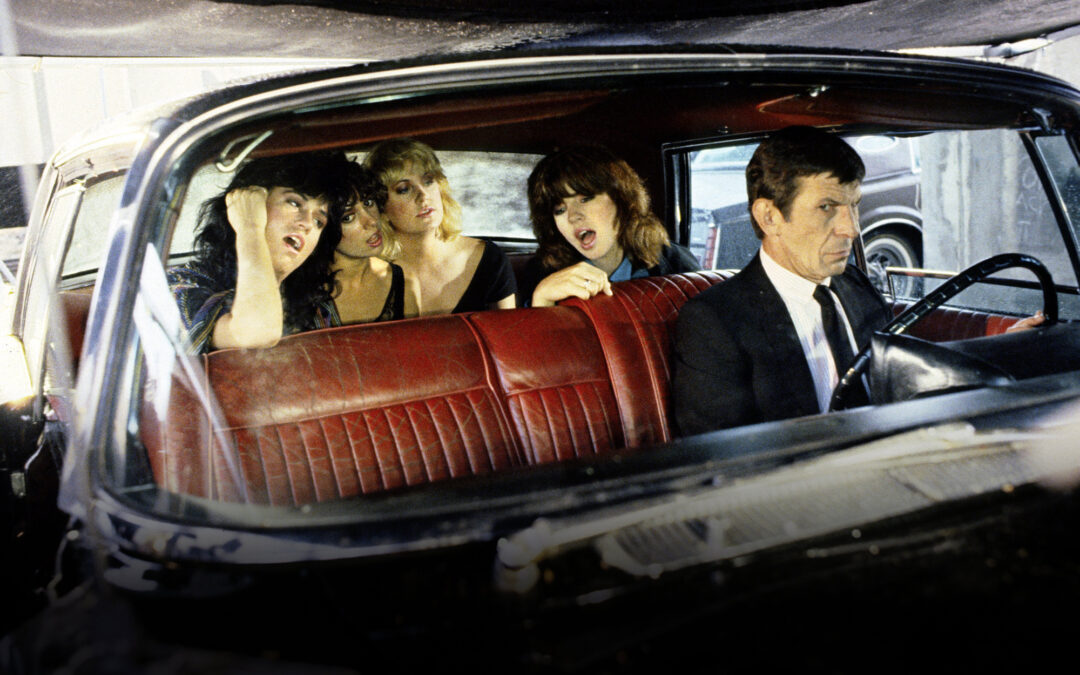Mojo
FEATURE
Ride The Paisley Underground
AM radio ’60s pop-addiction brought The Bangles together, as it did other like-minded American groups of the post-punk ’80s. And after 1984’s debut All Over The Place and videos starring Mr. Spock, serious stardom and Prince were calling. But if the supportive, sympatico music scene the Bangles, the Rain Parade, The Three O’Clock and The Dream Syndicate found together was not built to endure, as Martin Aston hears, “it was a beautiful, fragmented moment.”
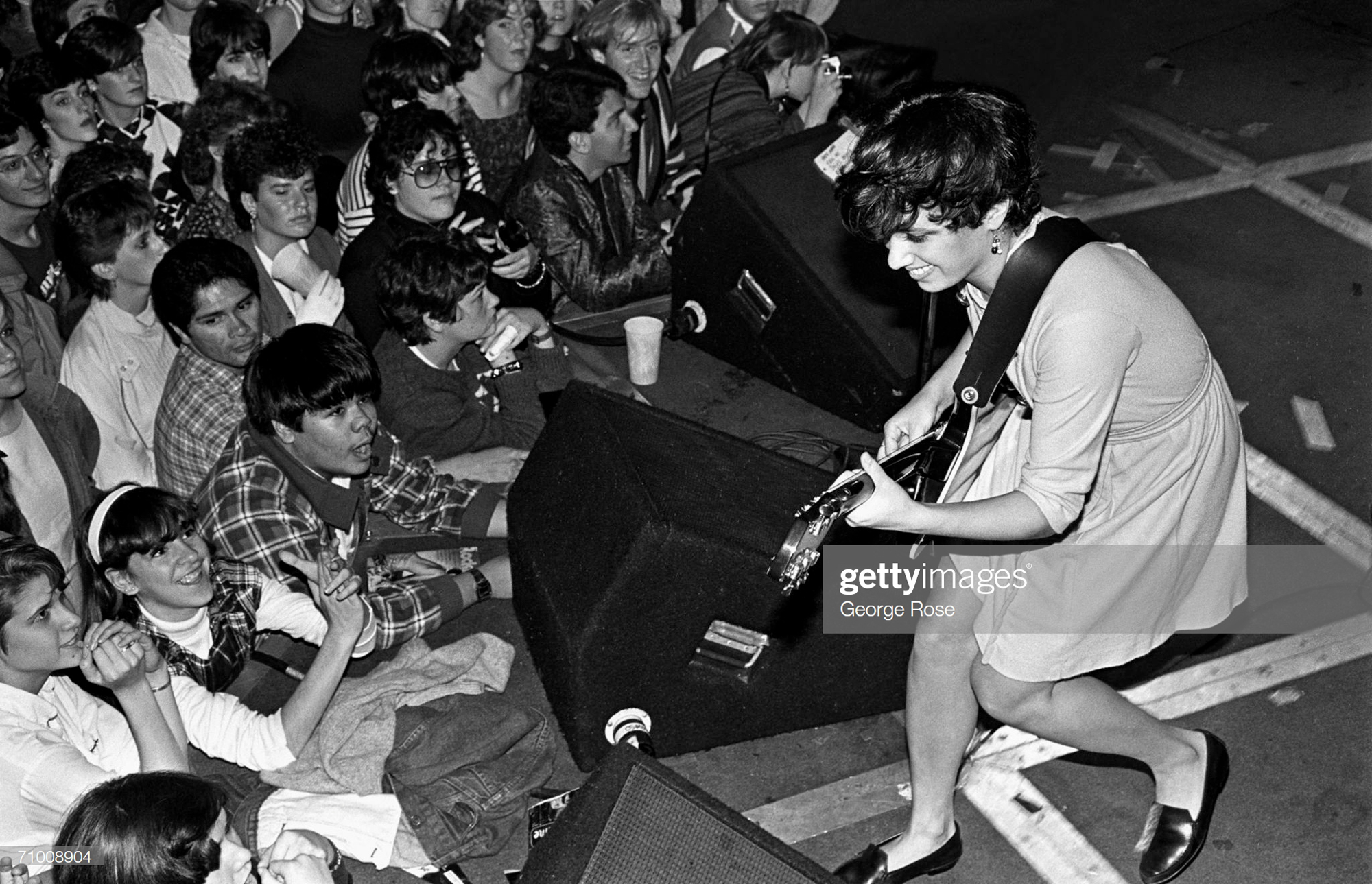
WEST HOLLYWOOD, CA – 1981: Susanna Hoffs, guitarist with the all-girl band The Bangles, performs onstage during a 1981 concert at The Roxy in West Hollywood, California. The Roxy performance was the group’s debut concert.
Vicki Peterson (Bangles, guitar/vocals): Growing up, we were very much tuned in to Top 40 radio. The radio on 24-7, in the car, our older sister was very good at DJing. It sank into our DNA. By the time we were in grade school, we were singing harmonies in the back seat – one would jump up, the other would jump down. It really came into play at high school. We formed a fledgling band and performed in clubs around LA, but the band dwindled down in 1980 to just Debbi and me. Then we met Susanna.
Susanna Hoffs (Bangles guitar/vocals): I’d just graduated from the University of California in Berkeley, and had come back to LA. I had the idea to get an all-girl band together, and made flyers which listed my favourite bands and said, “Must Be Nice”. I kept having to retrieve them from the trash can in the Whisky A Go-Go ladies’ room. I found an ad in The Recycler about forming an all-girl band. When I called the number, Vicki Peterson answered, but it was her roommate’s ad.
VP: It was right after Lennon had been assassinated, we were completely in a state, I’d never spoken to her before, but we were both pouring out our emotional life to a stranger. We agreed to meet a week later, in her garage. Immediately Debbi and I felt an immediate connection [with her]. Musically, she also had a deep abiding love for the ’60s: most of our contemporaries were unaware of who The Buckinghams were, or anyone, other than, “Oh yeah, we have heard of The Beatles.” We met the Rain Parade through Susanna, she had dated David [Roback] at Berkeley, and stayed friends.
Dan Stuart (Green On Red, guitar/vocals): Most band members associated with what would become known as The Paisley Underground were born around 1960, in the west: I’m from Tucson. Which meant a lot of long drives with your folks, listening to Top 40 AM radio through one shitty speaker. You’d hear The Mamas And The Papas, The Byrds, The Doors, Dylan was still in the charts. By junior high, it was FM radio and albums, and just around the corner was punk.
Steve Wynn (The Dream Syndicate, guitar/vocals): After punk, I’d looked to England: The Fall, the Bunnymen, Joy Division. America had The Fleshtones and The Gun Club and, in LA, The Last and The Unclaimed, with Sid Griffin on guitar. The Dream Syndicate was based on bands that didn’t sell, the freaks and the beautiful losers, like Big Star. The Velvet Underground was a fair comparison, taking traditional folk-influenced pop and trashing it from the inside.
VP: We started as The Colours – English spelling, of course, being Anglophiles – and then The Bangs, and decided to make a single, to protect our new name [The Bangs’ Getting Out Of Hand, 1981]. Ironically, as there was another Bangs, we became the Bangles later. We were doing things ourselves, found a studio, pooled our day job money – less than $100 to cut two sides, OK, we are a record company now, how do we distribute the record, Xerox the cover, get the plastic sleeves? We’ll go to our local record store, Rhino Records.
SW: I worked full time at Rhino, where I discovered a lot of bands, like I’d order five copies of the single by The Salvation Army [soon to become The Three O’Clock]. I told The Bangs I could help as I had a little knowledge about making and distributing records. It went from there to talking about doing shows together.
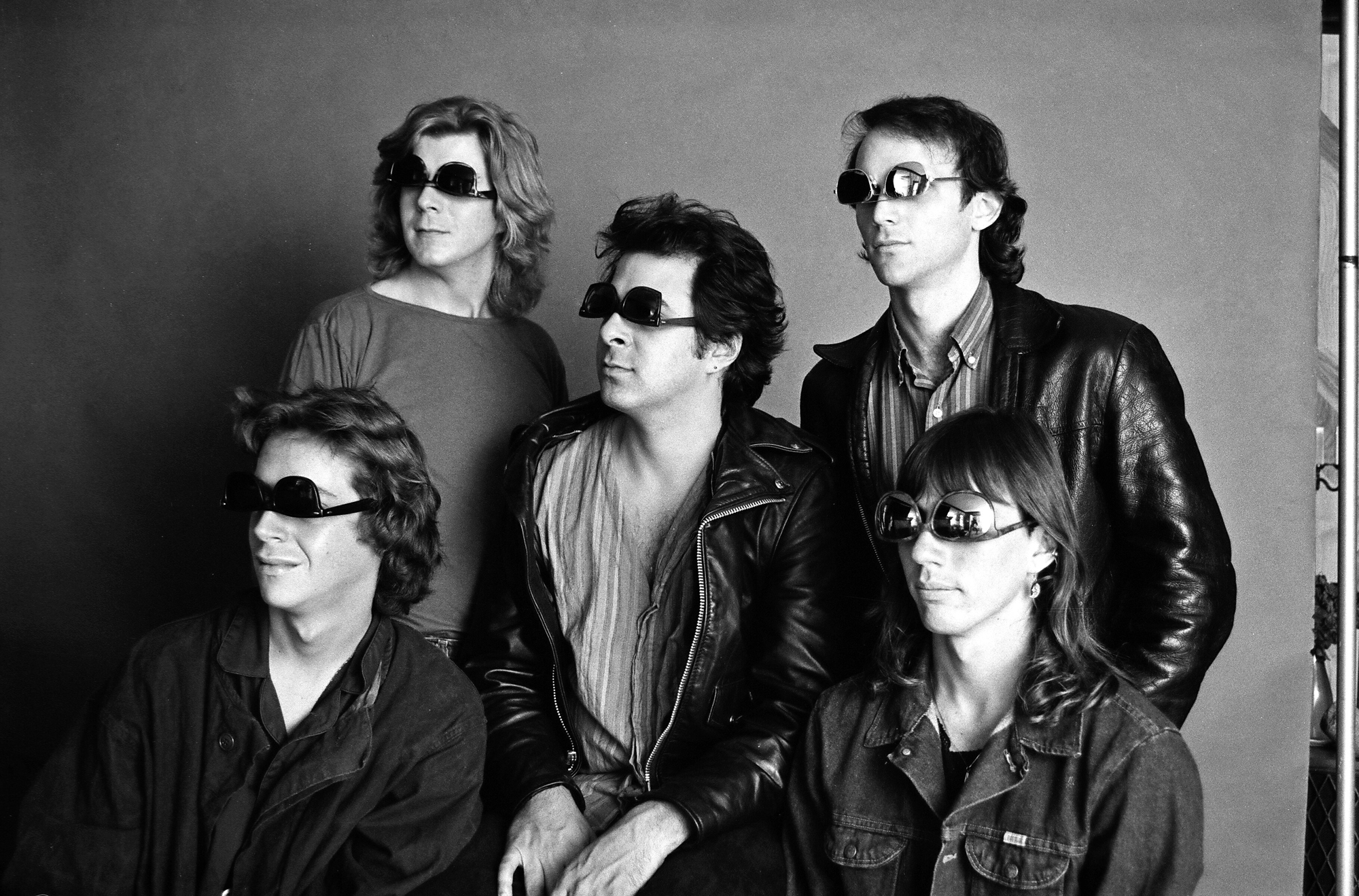
CIRCA 1970: Photo of Rain Parade, the Bangles’ contemporaries.
VP: The Dream Syndicate spoke the same language as us, just with a different accent. I’d already seen The Salvation Army play, and I met the Rain Parade through Susanna, as the Hoffs lived down the street from the Robacks, who started the Rain Parade.
Matt Piucci (Rain Parade, guitar/vocals): Steven [Roback], David [Roback] and I were at school together. We’d bonded over The Doors, Byrds and Beatles, then punk was really exciting. But we tired of the bashing, screaming and sloppiness, and no one else was making psychedelic, song-based music in LA except The Last, who were punky and melodic, like proto-paisley. When we played waltzes with 50 guitars, punks didn’t know what to make of us.
Michael Quercio (The Three O’Clock, vocals/bass): The Bangs’ first show was with The Salvation Army and [hardcore punks] Social Distortion! That was a weird bill.
SW: We did shows together, partied together, dated each other. Barbecues at Green On Red’s house were every Sunday night, 40 or 50 people, strumming guitars. There were drugs but not casualties. We were all music fanatics with record collections, who wanted to make records as good as those we loved, which was more important than how wasted we could get or the amount of wild action on the road. The music we played wasn’t in fashion or favour. It quickly bonded us.
VP: All the connections were made in weeks, or months, and we started sharing bills. The Dream Syndicate, Rain Parade, Bangs and The Three O’Clock were all on one bill, at the Music Machine.
MQ: The LA Weekly interviewed The Three O’Clock and the guy asked, what do you call this scene? I replied, “It’s the Paisley Underground”. I think it came from a poem my friend Lisa had written, and her friend has repeated the phrase to me. It was an off-the-cuff comment, but a month later, I heard that The Paisley Underground was in an English music paper! I think it pigeonholed the bands as a more revivalist thing that we really were, but everyone loves a moniker, and it gave us notoriety.
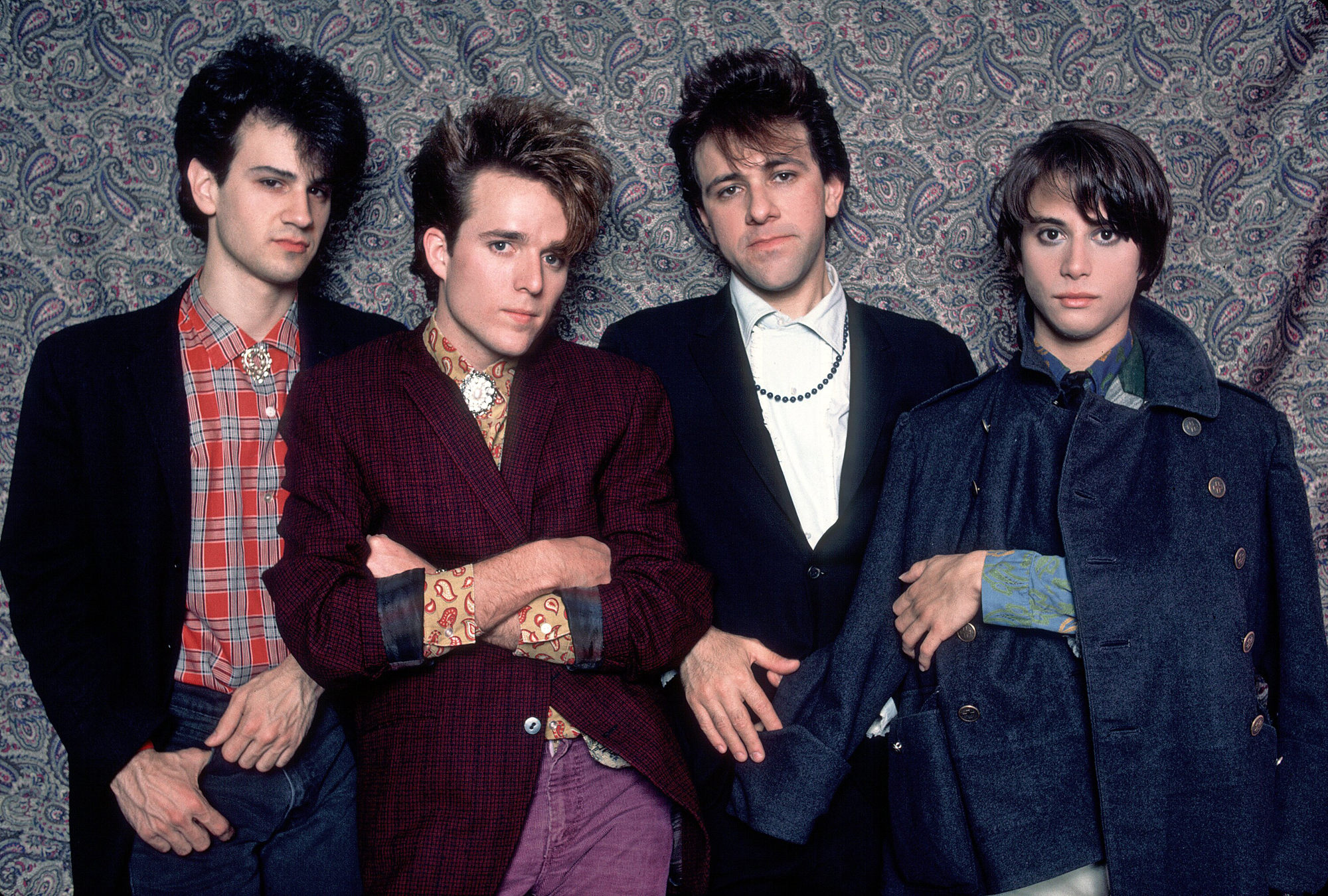
CHICAGO, IL – 1985: Portrait of the members of American Alternative Rock group the Three O’Clock as they pose backstage at the Metro. Pictured are Danny Benair, Louis Gutuerrez, Mike Mariano, and Michael Quercio.
VP: I thought “Paisley Underground” was brilliant. That was exactly what was going on, a club or a movement, rather than a genre. We were a club, a gang, all mining different parts of the same, musically complementary but not identical at all.
DS: Before the “Paisley Underground”, people would say “neo-psychedelic”… it’s that Groucho Marx saying, you don’t want to belong to any club that would have you. We used to call it “The Paisley Underwear”. If somebody in The Three O’Clock is very concerned about who was and wasn’t in the scene, that’s a fool’s errand.
Debbi Peterson (Bangles, drums/ vocals): We had an EP [1982’s Bangles on Miles Copeland’s Faulty label] out and all of a sudden we find record companies are interested in us, and we’re thinking, “Oh, that’s really nice, but we don’t think we’re ready for it”… we had this budding baby band going and we hadn’t reached that development we wanted to reach before we got signed to a major label. We were thrilled to death that they were even interested in us. We just couldn’t believe it, we were such a thrash band.
VP: Signing to Columbia, home of Dylan and Simon And Garfunkel, was thrilling and intimidating. We definitely felt pressure. People said, “You have no idea how much money is riding on it.” You could buy a house with what got spent on an album. [Producer] David [Kahne] and I only really fought during [Bangles debut album] All Over The Place when I insisted on real strings because keyboard sounds in the early ’80s didn’t sound lifelike. All Over The Place got a lot of college radio, which meant new fans.
SW: Making records in the ’80s was tough because the producer was the star. Like, it would have been hard to make White Light/White Heat in the ’80s. Most people in my world had to fight with different drummers being brought in, or working to a click track, or having their music sanitised. It was hard to know how much technology to let in, and when to put your foot down. Love us or hate us, what made Dream Syndicate happy was making a psychedelic, freaky, droning, beautiful noise. But the love-hate ratio started shifting. We wanted more love!
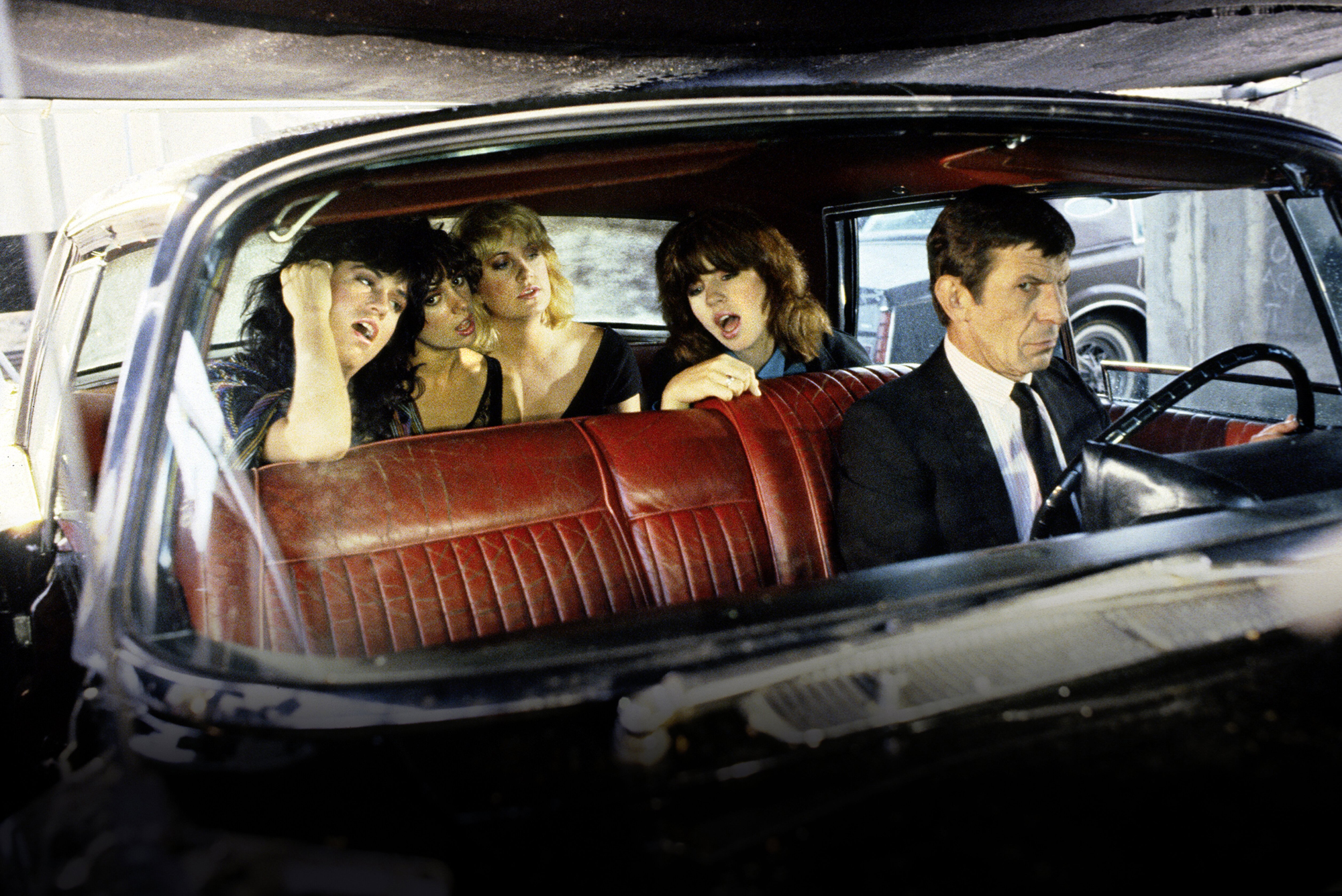
Vicki Peterson, Debbi Peterson, Susanna Hoffs and Michael Steele are chaufferred by actor Leonard Nimoy during the video shoot for their song “Going Down to Liverpool” which was released in 1984.
SH: [For 1984 All Over The Place single Going Down To Liverpool] My mother [Tamar Simon Hoffs] directed the video… Leonard Nimoy’s like an old friend of my family’s from way back. We were sitting around and we had this concept of the Bangles sitting in this mystery car being driven to Liverpool or wherever, right? And who’s gonna drive the car? It just occurred to me, Leonard Nimoy would be great, so I called him up, and I thought, “Oh God, he’s never gonna wanna do it”, but he said yes!
VP: One All Over The Place song in particular, Hero Takes A Fall, made a fan of a very talented man named Prince. He sent two songs that he thought we could cover, Manic Monday and Jealous Girl. Manic Monday really grabbed us because it sounded like we could have written it.
MQ: Prince… See what I’m wearing in the video to [The Three O’Clock’s] I Go Wild, and then see Prince in his Around The World In A Day [sic] video. He even changed his hair to look like mine, and then called his label and studio Paisley Park. We signed to Paisley Park, but Prince didn’t get involved in our next record [1988’s Vermillion], which was very electronic-y, not us at all. You were afraid the label would cut you off, and because they were spending lots of money, they had to be in control.
MP: I felt sorry for the Bangles. They got put through the mill – the hairspray mill – and you know how that goes. Of course, they had the look too, which was still a novelty then, but that only gets you so far. They were great singers, like The Mamas And The Papas, but they could play too, and they were the most professional of all of us.
VP: I was concerned Columbia were looking at us less as songwriters, more vocalists-slash-models. But we didn’t express or discuss what we really wanted, we were just touring non-stop, and if we had a break, we’d be making the next record [1985’s Different Light and 1988’s Everything would both shift platinum: the group dissolved in 1989]. Don’t ask me about LA in the second half of the ’80s because I was barely here.
SW: Enough distance and time has passed since the original scene for all of us to own it. When people want to define you by what you did in your first year, you’re defensive, like, “Yeah, great, but check out what I’m doing now!” No one wants to stand still. Now we say, “Yeah, that was a special time, let’s celebrate it.”
VP: The Paisley Underground was a very brief time, because that level of camaraderie and connection couldn’t be sustained. All the bands had gone off on tour, all gone in different directions… but it was a beautiful, fragmented moment, that’s why it feels special for me. I was a proud member, and I still am. It never held us back.
This article first appeared in issue 311 of Mojo.
Images: Getty

